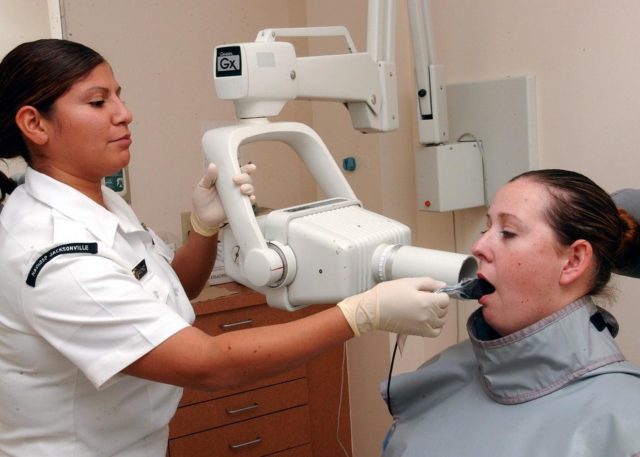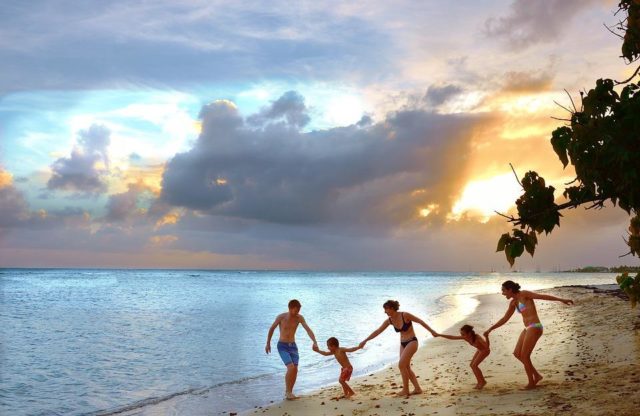There is nothing wrong with using a price comparison website to look for travel insurance options, provided you zero into the fine print of each offer
There is nothing wrong with using a price comparison website to look for travel insurance options, provided you zero into the fine print of each offering. As they say, the devil is in the detail and there’s often a reason why that policy seems too good to be true, and it can often be found in the terms and conditions.
In this article, we’ll list 20 things to check for in the small print of your policy so you can be sure you are covered for what you expect. If you are looking for an insurance company you know you can trust, make sure you check out State NZ Insurance.
Does your medical travel insurance specify the type of hospital?
Ensure you check the exact details of the medical plan you buy. Can you make a successful claim? Suppose your destination uses a tiered health system with private and public hospitals, will you be able to make a claim from a private hospital?
It will surprise you to know that some insurance companies specify the terms under which your policy is valid. From the type of hospital to the cause of your ailment and the conditions involved. Is the hospital regulated? Are they a standard recognised facility? Failure to clarify this early, can lead to regret.
Does your insurer provide a 24-hour emergency helpline?
When you are selecting an insurance policy, one of the important things to check is how robust the plan is. You never know where you trip might take you to, and a 24-hour helpline might be your saving grace. Being able reach your insurance provider at any time is a major advantage.
These hotlines allow the company to assess the situation and proffer medical advice, even in an emergency. For example, they can tell you the nearest place for medical attention. Your travel insurance provider might have local knowledge you are unaware of.

Does your plan cover pre-existing medical conditions?
In the scenario presented before, it is important to note that most insurance companies do not include pre-existing conditions in their standard policy. For some, you would have to buy it separately, while other don’t offer it at all. In this case, a specialised insurance company can suffice.
Pre-existing conditions are those medical problems that you regularly receive care or advice for. It may be hereditary, recently formed or from a previous injury. They may include diabetes, asthma, joint and bone conditions, gastrointestinal problems and so on.
Is there coverage from injury due to adventure sports?
If you usually participate in sports such as alpine skiing and surfing, review your policy for medical coverage related to accidents that stem from such activities. Some insurers offer standard covers that include this and even so, you must be an expert at the sport to be covered.
If you cannot find an insurance company with a standard cover for such activities, you may have to buy a separate policy from a specialised one. Never skimp on insurance for an adventure sport. It is just as important, if not more.
Check that your medical insurance covers dental care
Some providers regard dental care as a separate part of medical cover. If you don’t know, you could buy a plan thinking it is adequate for both medical and dental treatment. Ask your insurance company whether its policy includes dental treatments, and if it does, at what limit?
A safe limit to consider is at least £500. While it is easy to think that this is unnecessary, some people have been surprised by tooth accidents while eating, only to rack up unexpectedly high bills from the treatment.
Does flight cancellation insurance include the loss of a friend?
When purchasing cancellation insurance, find out the conditions for which you can cancel your trip. While some insurance companies allow you to do so upon the death of a direct family member, they do not consider close friends “emergency” enough to do so.
Does the policy over a cancellation for crisis or war situation?
Suppose you booked a flight two months ahead, and few weeks to the departure, a political crisis sweeps through the destination country, forcing the government to cancel flights there; can you claim ticket expenses?
This might sound like a no-brainer. After all, you couldn’t have known what would happen in that country. However, it is interesting to know that some policies don’t include this in their cover. Find out if your intended insurer does, while it is still early.

If you miss your flight due to traffic, will you be reimbursed?
James had a 9am flight to Istanbul and was up very early. Unfortunately, a road block from a resulting accident caused a long traffic that delayed him. When he eventually got to the airport, he discovered his plane had departed.
He bought another flight to Istanbul, thus incurring more expenses. When James tried to make a claim through his cancellation insurance, his insurer refused. They told him he could have taken another route. It is important to clarify this from your t & c before you buy an insurance.
Can you claim a curtailment if you feel sick and shorten your vacation?
The details of a flight insurance (cancellation and curtailment) can be tricky. What might seem like an emergency to you may not to an insurance provider. For example, if you suddenly feel sick and decide to return home, will the accommodation fees and flight expenses be paid?
Some insurers may request you to provide a doctor’s report about the severity of your ailment. However, if it is a pre-existing condition, the chances of compensation are very low. The aim of knowing is not to forfeit the policy but to be aware and accommodate it in your plans.
Do you get a refund if your flight is cancelled due to dangerous weather?
Recently, flights to Ireland were cancelled because of Hurricane Ophelia. For thousands of travellers, their plans were halted, along with their accommodation arrangements and business plans. Is your policy designed to protect you against such situations?
This is a valid concern and while some insurance companies address it, others ignore it in the terms and conditions. It is highly recommended that you choose a service that is upfront about their refund policy. Don’t hesitate to call and ask if you are unsure.
*If an airline delays your flight for up to 2 or 3 hours, it is their responsibility to provide food, free phone calls (or email) and accommodation if you are staying overnight.
In a baggage theft and loss insurance policy, what do they consider as “valuables”?
Like an “emergency”, it is important to clarify what is considered as valuables. If you are travelling with items important to you, check if they are covered in the baggage theft and insurance policy.
Most insurers have a maximum amount known as the “single article limit”- and it is covered for each separate article. There is also a limit on total amount that can be claimed “valuable” items. A good limit is between £1,500 – £3,000.
Review the details of a claim for baggage theft
Some insurance policies have strict terms for refunding clams for theft or loss of your bags. In some cases, it may require proof of violent entry or break-in. If there is no sign that the door to a room was broken or that a locker was destroyed, some insurers will not pay the claims.
Similarly, a police report is required before some claims can be disbursed. Make sure you understand these terms to avoid regrets. If you are uncomfortable with any conditions, you can always backtrack and find a more favourable provider.
Are your belongings covered if it is lost while in the possession of another person?
Some insurance policies are holder-specific. That is, they are only valid if the danger occurs while in your custody. For example, if you ask a friend to carry your heavy bag and they lose it during that period, some insurance companies will not take responsibility for the claim.
When considering making a claim for a lost item, check the terms carefully; many fragile and expensive items are only covered if they are lost under specific conditions. Theft from things like unattended cars will have a limited coverage.

Are bags and items lost by the airline covered by the baggage insurance?
Naturally, if an airline is responsible for losing your luggage, they are liable for refunding its value. However, this may take some time before the final arrangements are made. In any case, most insurance providers will not cover the cost unless the airline declares bankruptcy
Nonetheless, each insurer offers different terms for their plans. Ask specifically what the details are for bags lost by an airline.
Under what conditions can you claim a lost item?
If you left your wallet on a beach towel to go for a swim, and it was stolen, can you make a claim for the contents? Some insurers will consider this as careless and hence not pay for the loss. However, it is good you know, so you can conduct your business more carefully.
Does standard medical cover include medivac expenses?
Check if they offer a medivac plan. A medical evacuation, for some companies, is a separate cover. But some exclusive insurance providers offer it as a special package in case of extreme situations. While rare, medivac plans have relieved (financially) travellers who had to be transported back home in an emergency.

Does the travel insurance plan cover all family members?
There are family travel insurance plans, designed to cover two adults and at least two dependent children (under 18). However, some plans strictly indicate cover for children living in the primary address of the policy holder.
So, what happens if you are travelling with children in the custody of a divorced spouse? In such situations, they will have a different address. You want a full coverage that doesn’t leave anybody exposed.
What are the terms for a personal liability cover for second-hand intoxication?
Being inebriated can cause people to get into one skirmish or the other. If you take a personal liability insurance while you are abroad, will it cover substance-related incidents? As a rule, many insurers have strong reservations pertaining to alcohol or other substances.
Nonetheless, people are sometimes not ‘intoxicated’ by their own doing. On such occasions, will the provider cover losses, theft or healthcare costs?
What are the terms in the event of your death?
Some insurance policies may cover certain expenses accrued by an individual’s estate in the event of their death abroad. This may include the cost of transportation home, a burial or the cremation. It is essential to find out what it entails so that your family doesn’t end up paying for excesses that don’t involve them.
Always check the exclusions
The insurance industry is a highly competitive one. Because of this, many providers downgrade the content of their plans. At face value, a travel insurance plan may seem attractive because it is cheap. But what details have been taken out?
If you buy a medical cover simply because it is cheaper than other offers, you could discover too late that it does not cover dental care. The exclusions are just as important as the details of the policy itself. Feel free to ask questions if you are unsure about anything.



















































































































COMMENTS